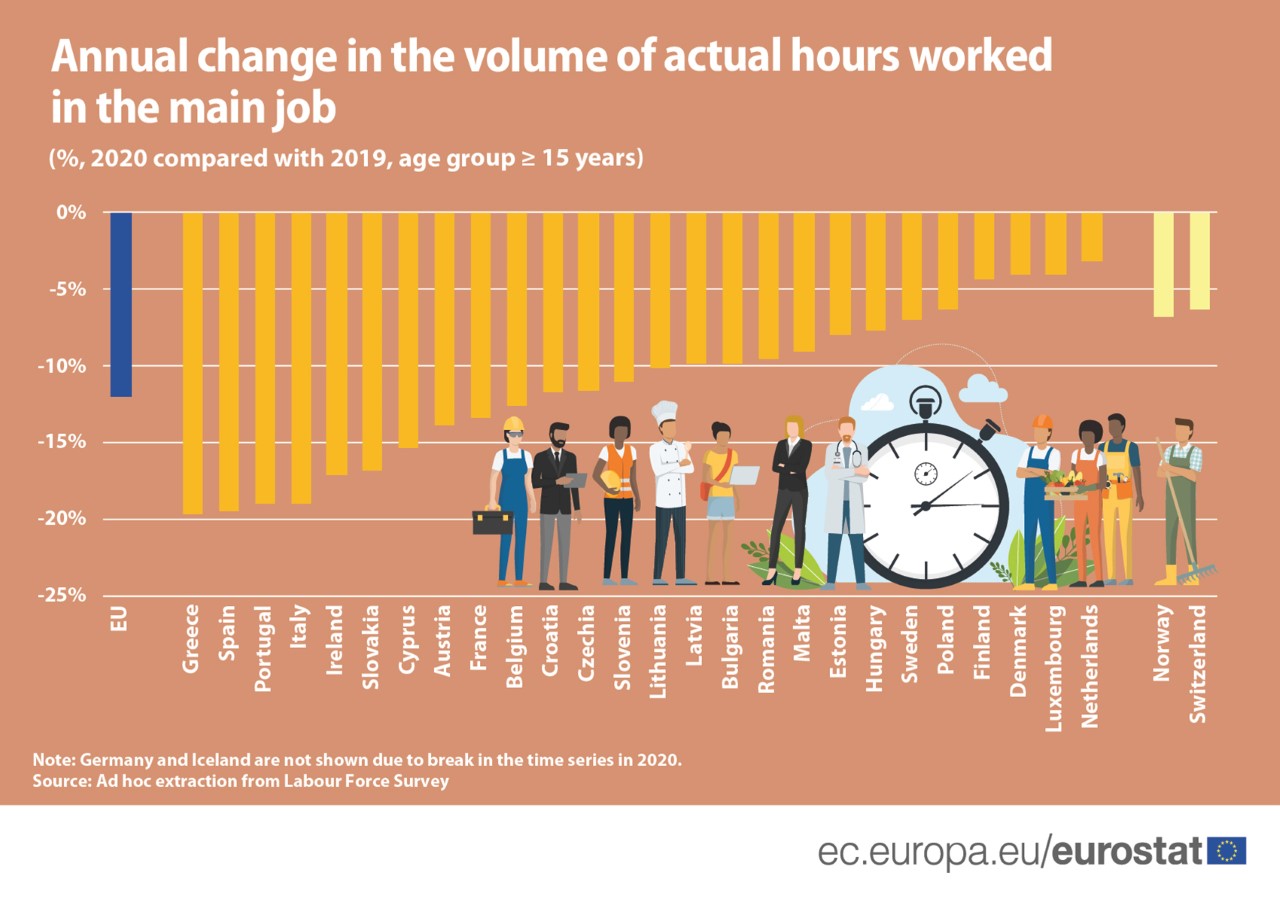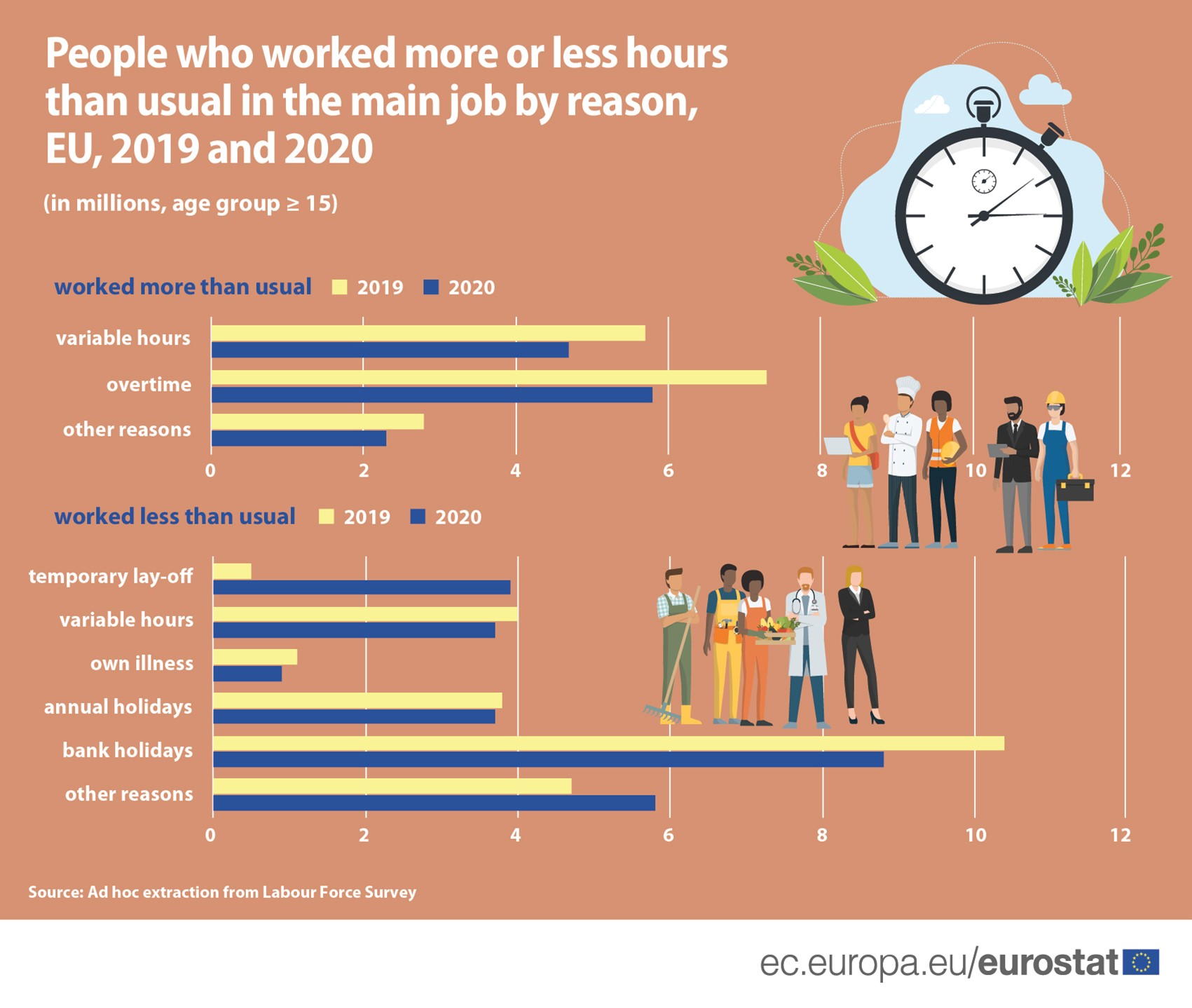
In 2020, the number of actual hours worked in the main job in the EU decreased by 12.0% when compared with 2019. This decrease can be explained by the measures taken in response to the COVID-19 pandemic, which led many people to alternate between periods of work and periods of absence from work in 2020. As a result, more people worked fewer hours than usual and were absent from their jobs.
At the national level, there was a decline in hours worked across all Member States. The highest declines were recorded for Greece (-19.7%), Spain (-19.5%), Portugal and Italy (both -19.0%).
The EU countries where there was little change in hours worked (with a reduction of less than 5%) were: Finland (-4.4%), Denmark and Luxembourg (both -4.1%) and the Netherlands (-3.2%).
More people worked fewer hours than usual in 2020
Throughout the EU, 26.9 million employed people reported that they had worked less than their usual working hours in 2020. This compared with 24.4 million employed persons working less than their usual working hours in 2019.
The primary reason for the increase in the number of people working fewer hours than usual in 2020 was the temporary lay-off: the number of temporary lay-offs ballooned from 0.5 million in 2019 to 3.9 million in 2020. In addition, 5.8 million people worked less hours than usual for other reasons (which namely include parental and special leave, education and training) in 2020, up from 4.7 million in 2019.
Over the same period, the number of people who worked more than their usual hours decreased regardless of the reason for working more. The number of people working overtime declined from 7.3 million in 2019 to 5.8 million in 2020; the number of those who had worked more due to variable hours fell by 1 million to 4.7 million and the number of those who worked more for other reasons decreased by 0.5 million to 2.3 million.
For more information:
- Read our Statistics Explained article on Hours of work - annual statistics.
- Other reasons for working less than usual include maternity or parental leave, special leave, education or training, bad weather, labour dispute, start of change in job and end of job.
- Special extraction data source
To contact us, please visit our User Support page.
For press queries, please contact our Media Support.



